Note: This article contains spoilers
For many viewers, "Echo" is another suspense drama that does not take an unusual path. Although it runs through the detection of a murder case, the female criminal policeman Ran Dongdong (played by Song Jia) has a strong relationship with her husband Mu Dafu (played by Wang Yang). The suspicion of whether or not he is derailed also runs through the whole time, the marriage of the two is entangled endlessly, and the role of the scene is basically equal to that of the criminal investigation and reasoning part. Because of this, the Douban team continued to question Ran Dongdong, such as "Is the heroine sick... so annoying", "Echo" is also known as "Why My Husband Opened a Room", "Fairy grandpa, too Pretending to be dead"...
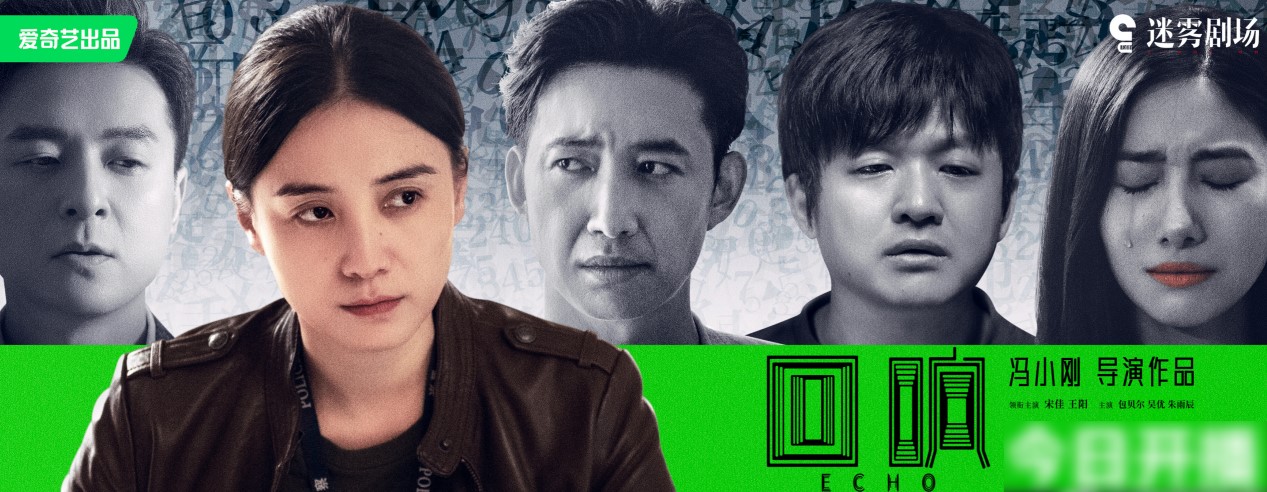
"Echo" poster
To be fair, this is characteristic of the original novel. "Echo" is adapted from the novel of the same name by the famous writer Dong Dong, which is a serious novel with genre elements. The odd-numbered and even-numbered chapters in the novel have their own emphases. The odd-numbered chapters are the part of criminal investigation and reasoning. A young woman named Xia Bingqing was killed. Criminal police officer Ran Dongdong was in charge of the investigation of the murder case.
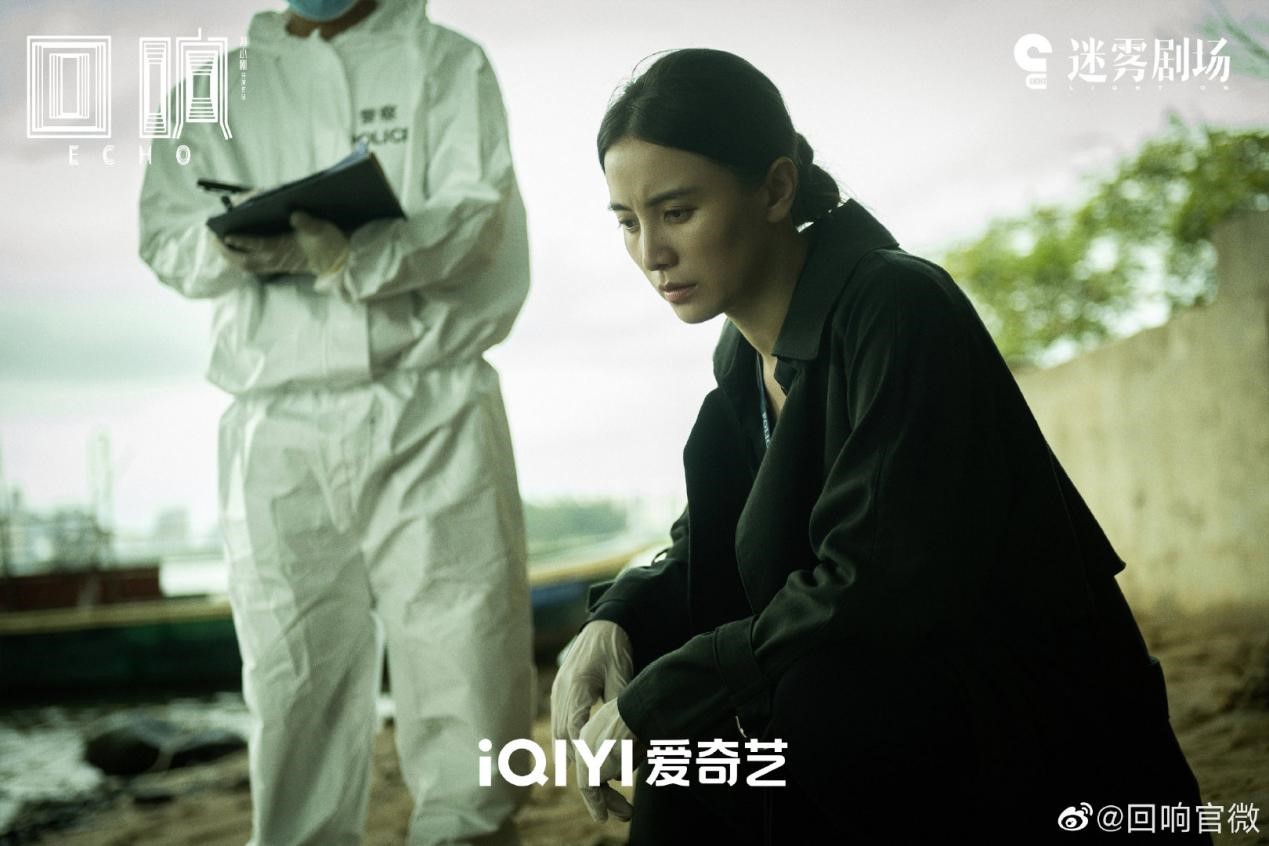
Ran Dongdong (Song Jia)
The even-numbered chapters are the highlight of the novel, which focuses on psychological suspense. When Ran Dongdong investigated the murder case and checked the surveillance of a certain hotel, he accidentally discovered that her husband, Mu Dafu, had appeared in the hotel, and Mu Dafu had opened a room twice in the last month and last month respectively. Why does the husband come here to open a house? Is he cheating? Who is cheating on? Ran Dongdong interrogated Mu Dafu like a prisoner, and the couple started a long psychological offensive and defensive battle.
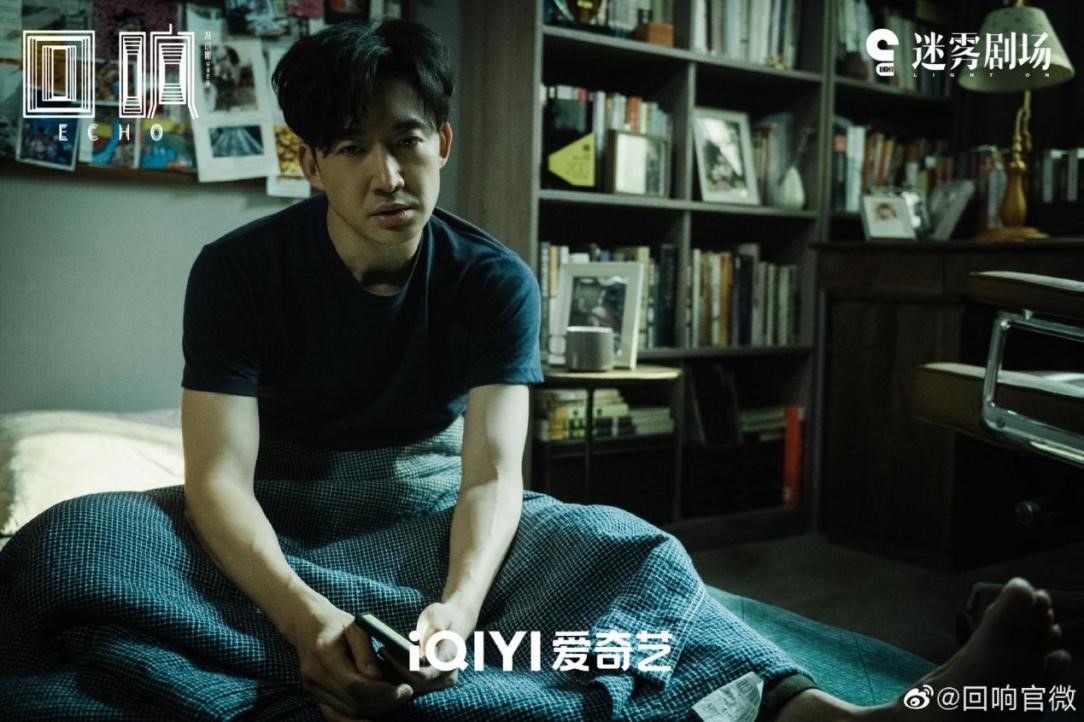
Mu Dafu (played by Wang Yang)
The implication of the title "Echo" is also here. The odd-numbered chapters are Ran Dongdong's "never forget"-she went all out to solve the murder case, and the even-numbered chapters are her "must have echoes"-she still retains interrogators in her life identity and habits, trying to find out love and people's hearts. The odd and even chapters of the novel can only be merged at the end, and the biggest suspense in the novel is revealed-the drama version has not been changed, this is a later story.
To be fair, if you compare the novel, the first 12 episodes (there are 13 episodes in this show) are still very restored to the novel, and some parts are also good-looking. The psychological offense and defense between Ran Dongdong and Muduff fully reflected the collapse of trust and the growth of suspicion in the marriage relationship. Some viewers felt that the sense of substitution was very strong. Ran Dongdong's interrogation of Muduff was like interrogating Qianqian Thousands of couples.
However, there are not a few audiences who think that the play is twisted, mainly because Ran Dongdong makes the audience feel very twisted and difficult to deal with. After reading the novel, the author is more inclined to think that this is not the main responsibility of the screenwriter or director, but more from the natural limitations of the lens language in expressing psychological suspense. That is to say, the complex and detailed inner descriptions of the characters in the novel, with three times and nine turns, inevitably have to be compromised when converted into camera language; : The reasonable actions of the characters in the novel sometimes turn into awkward characters and weird lines in the play.
Take the scene where Ran Dongdong buys underwear for Muduff as an example. In the play, Ran Dongdong asked his daughter if his father loved his mother. The daughter said yes, and the reason was: "Daddy saves food for you every day, and he picks the best ones, so he keeps a lot. When you are here, he Just eat a big bowl, and when you’re not around, he’ll just take a small bite.” This is almost the exact words in the novel. Afterwards, Ran Dongdong happened to see that Mudaf's underwear, which was drying on the balcony, had holes. She was thoughtful.
In the next set of shots, Ran Dongdong is holding the panties with holes, walking to the door of the kitchen and asking Muduff, who is cooking, why a majestic university professor still wears underwear with holes, and asks Muduff: I will give it to you online. Didn't you receive those panties you bought?
Mu Dafu was startled, only to realize that the underwear was bought by Ran Dongdong. But Ran Dongdong sent it to Mudhav's office, and he used it anonymously. Mudhav said he thought it was a fraud and did not take it apart to wear it. Then Ran Dongdong asked, she wanted to know who sent Mu Dafu first when he received the underwear.
Mudhav answered you casually. But Ran Dongdong didn't believe it, otherwise Mu Dafu didn't even ask her tentatively. Mudhav said displeasedly that buying him underwear was not to care about him but to test him? Ran Dongdong was stopped by the question, and Ran Dongdong's inner monologue appeared at this time: "Do I want to care about him, or test him? When I helped him buy underwear online, I thought of fulfilling my wife's responsibility, but I didn't care about him. Thinking about subconsciously wanting to test him."
Mu Dafu explained again, Ran Dongdong deconstructed again, and finally she said, "Okay, this is my test, congratulations, you didn't pass." Mu Dafu was also a little bit anxious, and asked Ran Dongdong if the boss asked him if he still loved her, "If you have time, you should think about it, do you still love me?" Ran Dongdong got angry, threw his chopsticks on the table, and the meal broke up again.
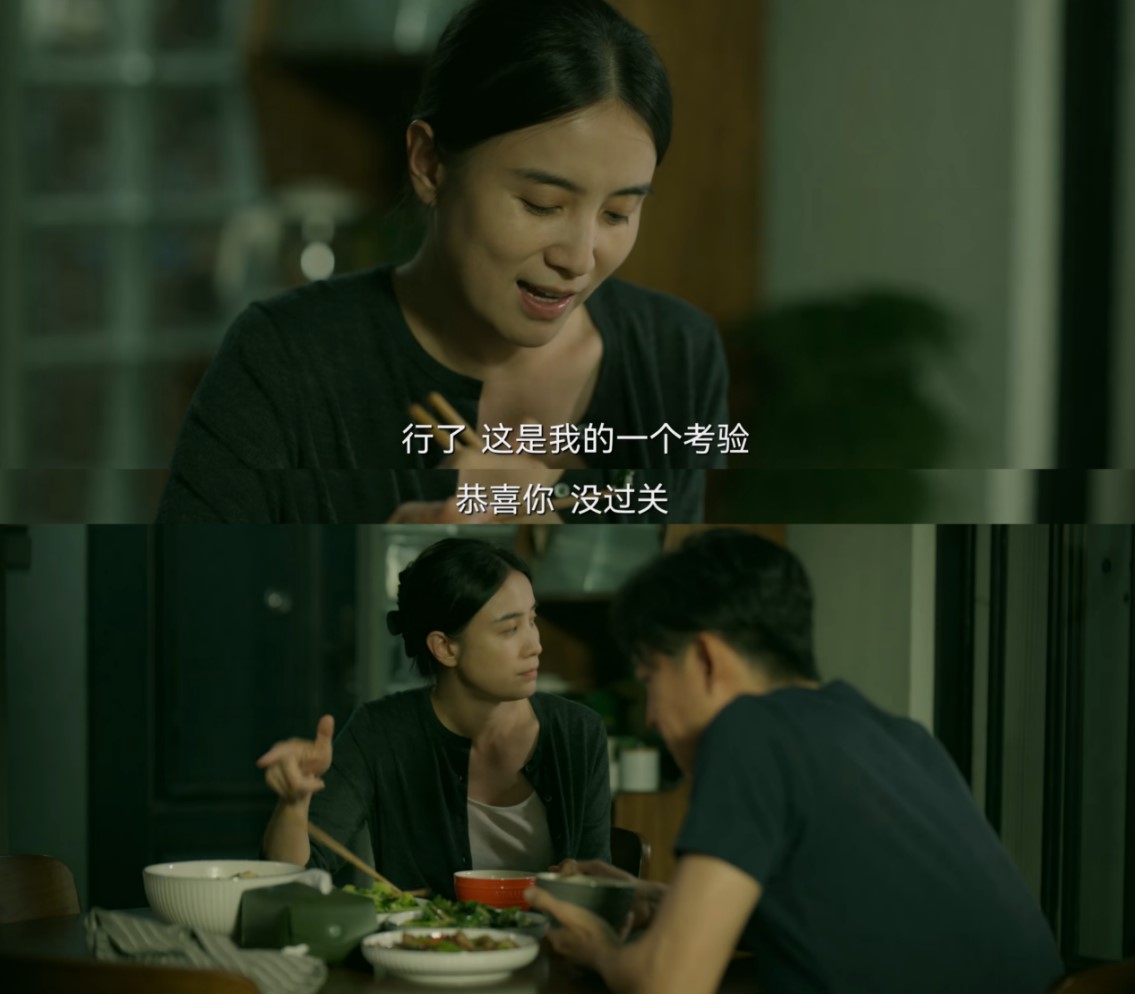
The plot makes people feel that Ran Dongdong is "difficult to serve"
Frankly speaking, if you don't have a background in novels, it's really hard to imagine that the screenwriters of domestic dramas will write such "casual pens"-although it gives people a very suffocating overall impression, it also grasps people's hearts in a subtle way. It's a pity that even if it's a good-looking plot, many viewers still feel too depressed, and feel that Ran Dongdong is too twisted and aggressive.
Don't blame the audience, because the more subtle things in the novel are not shown by the means of film and television. Just look at the treatment in the novel. After hearing her daughter's words and seeing the hole in her husband's underwear, Ran Dongdong's inner activity was: "She looked up and saw a small hole in Mudav's underwear. But the more she looked at the hole, the bigger it became. It was so big that she was ashamed and wanted to get in through that hole. She thought that I had not fulfilled my wife's responsibility, so she immediately took out her mobile phone, anonymously bought five pairs of brand-name underwear for Muduff on the Internet, and left the address of his unit. down, the hole hanging overhead gradually shrunk until she could barely see it."
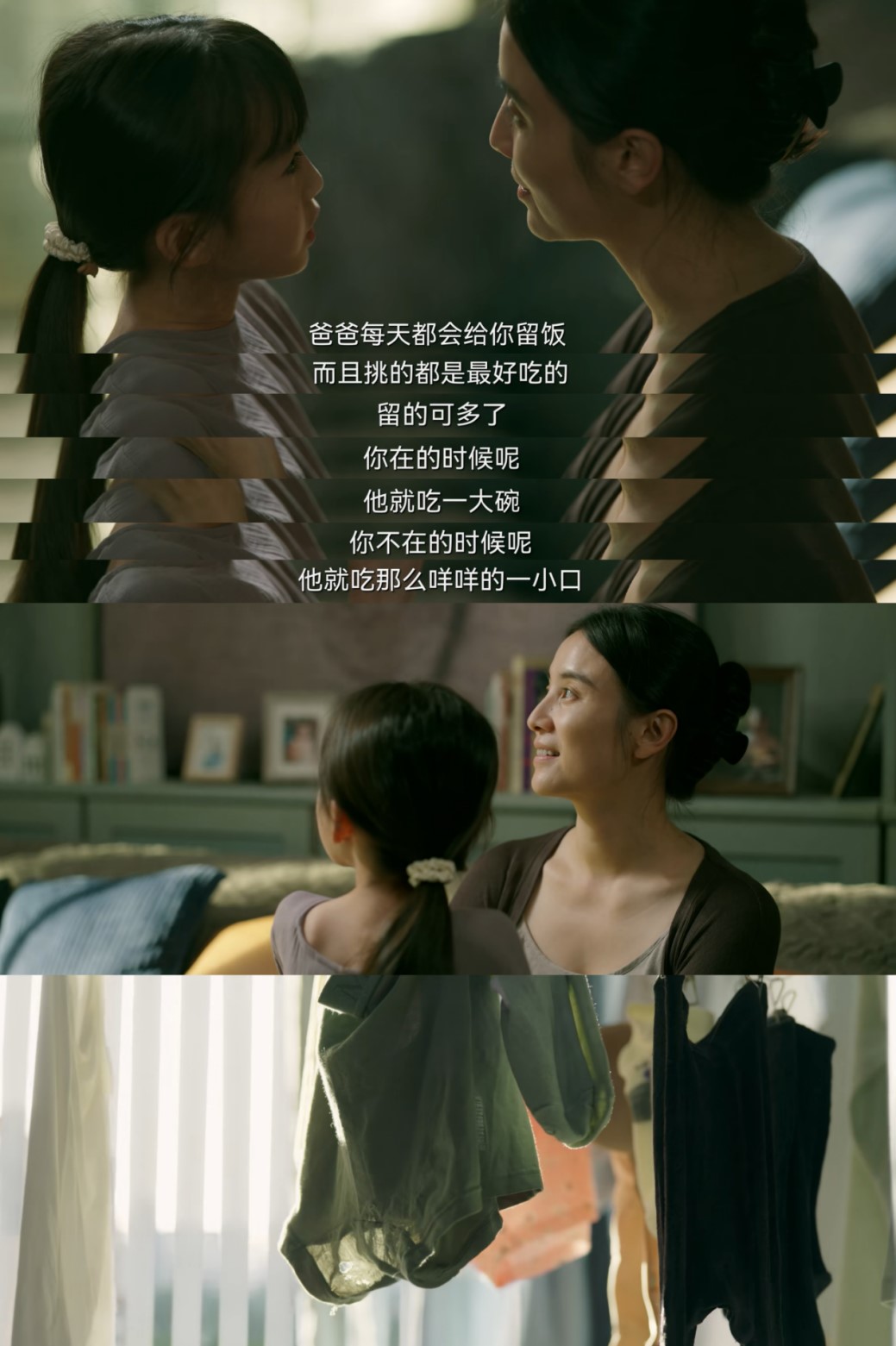
The lens language can't express Ran Dongdong's delicate "guilt love" for Mu Dafu
Ran Dongdong could feel Mu Dafu's devotion to her and the family, but she was always busy with work and neglected to take care of and respond to her husband's daily life, so she bought underwear in a hurry. This move has three levels: first, her "guilty love" for Mu Dafu (this is a very important concept in the novel), she loves Mu Dafu because of guilt; second, her love for Mu Dafu When it gradually faded, she refused to express her love, and she didn't even want to tell her husband directly when she bought underwear for her husband; third, she subconsciously wanted to test her husband.
After Mudhav received the underwear, the novel has a wonderful analysis of his inner activities, which is completely absent in the play. Before the couple actually brought up the topic of underwear, they mentioned the word underwear—it was related to the murder case that Ran Dongdong investigated. matter. The show makes no mention of this.
It wasn't until later, when Ran Dongdong was caught up in the murder case, that she suddenly remembered about the underpants, that she pressed Mudhav to question—the plot was connected to the novel from here, and the location became the kitchen. But the plot still deletes some key details. For example, the last sentence of Ran Dongdong's inner monologue is self-doubt, "It turns out that I can't see through myself, and I am lying to myself." As the interrogator, she finally began to interrogate herself.
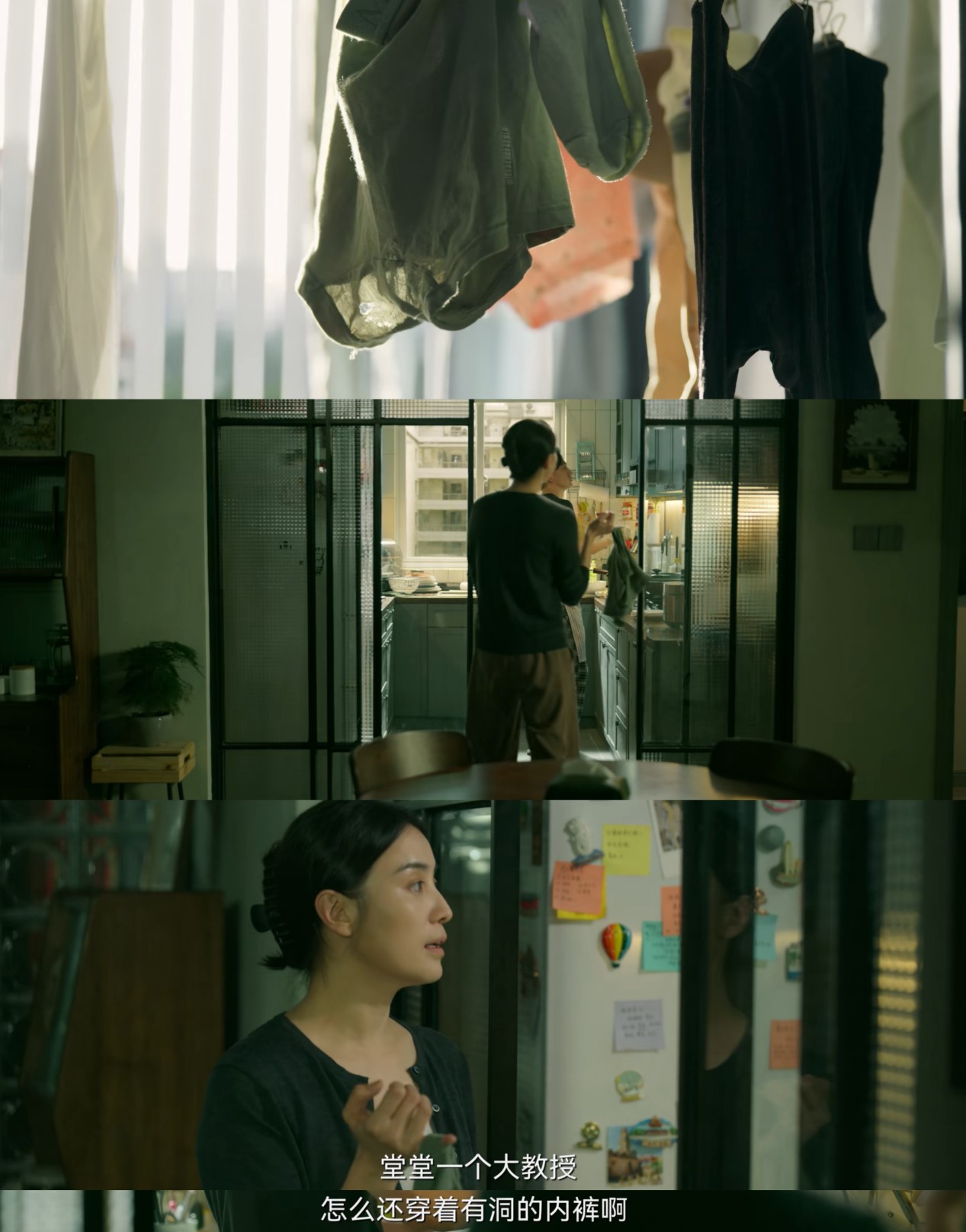
In the play, the complicated process of the psychological game between the two is omitted, and the next scene on the balcony is Ran Dongdong's straightforward questioning
The series has worked hard to carry the novel, but from the comparison of this bridge, it can be clearly seen that Ran Dongdong's richness has been reduced, and the language of the camera cannot fully express her personality characteristics and inner world. She is the biggest suspense in the novel, and also the deep meaning of the novel: people's hearts are more complicated than a suspenseful murder case; it is difficult to see through others, but it is even more difficult to see through oneself.
But twisting the bar is actually not the biggest problem of the series. The author personally thinks that there are two places where the drama was handled improperly. One is that it "recognized" Mudaf's derailment.

In the play, Mudhav's derailment is "sit down"
Has Mudaf cheated on him? The novel maintains an ambiguous attitude towards this, and it seems that there is no, because there is no evidence. However, in episode 8, Mudhav had two sex sessions. He did date a beautiful woman, although nothing happened—this is one of the few original episodes in the series, and it was revealed as soon as it was created. This makes the play change from ambiguous and ambiguous psychological suspense and psychological exploration to a real action of catching cheating, and lowers the novel's thinking on the philosophical level of the human heart to the level of emotional and ethical dramas.
The other thing is the ending, it's really heartbreaking to watch, it's a pity, more than one star was lost. This is not the limitation of the lens language - it is easy to shoot, but more of some external force or the creator's self-discipline, such as the need to ensure that the image of the police is flawless. The biggest suspense in the novel lies in Ran Dongdong. She has always had a crush on Shao Tianwei (played by Hou Wenyuan) subconsciously. She is not aware of this and bears huge moral pressure, so she desperately wants to ask whether Mu Dafu is cheating. to assuage your guilt. In this way, the novel deconstructs the image of Ran Dongdong's interrogator, and takes the audience into the deep sea of people's hearts. But now the positive ending of the drama version makes these profound meanings disappear.
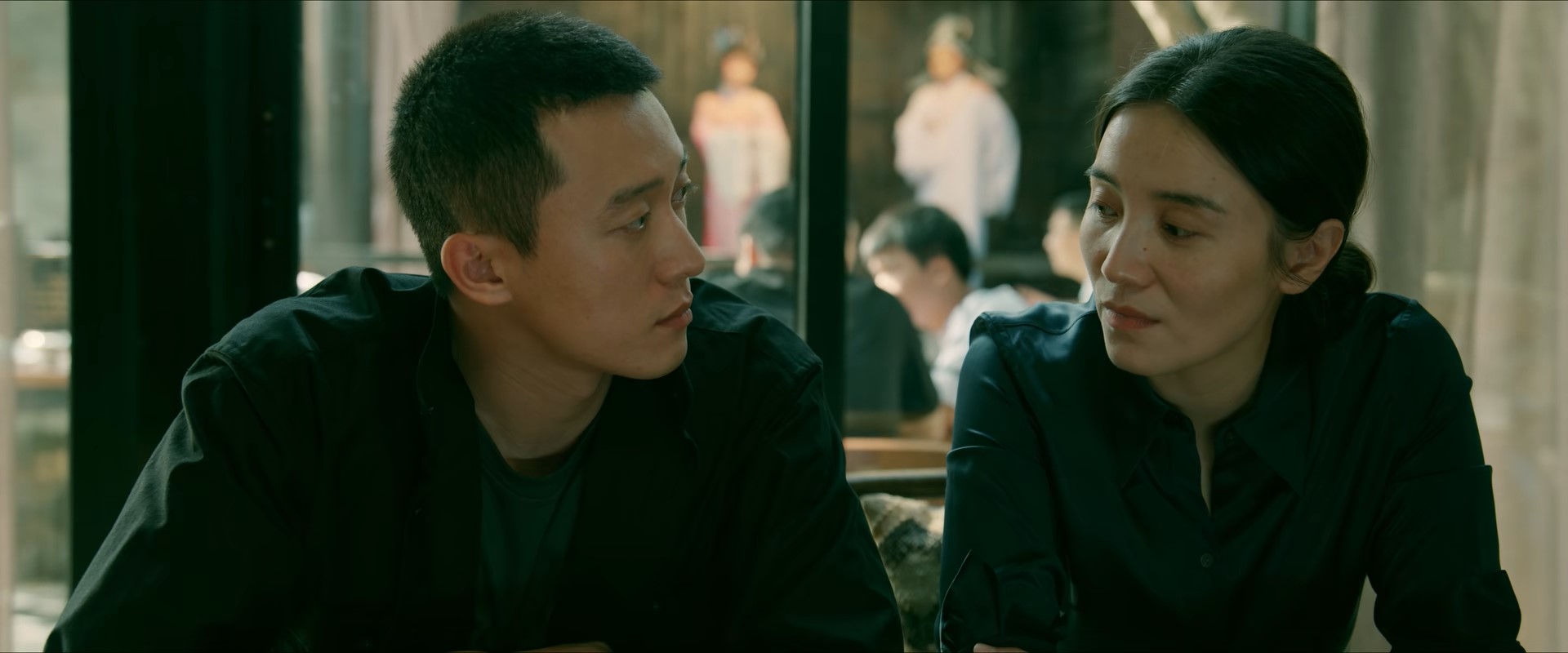
Unexpectedly, in the novel, Ran Dongdong has always liked Shao Tianwei without knowing it
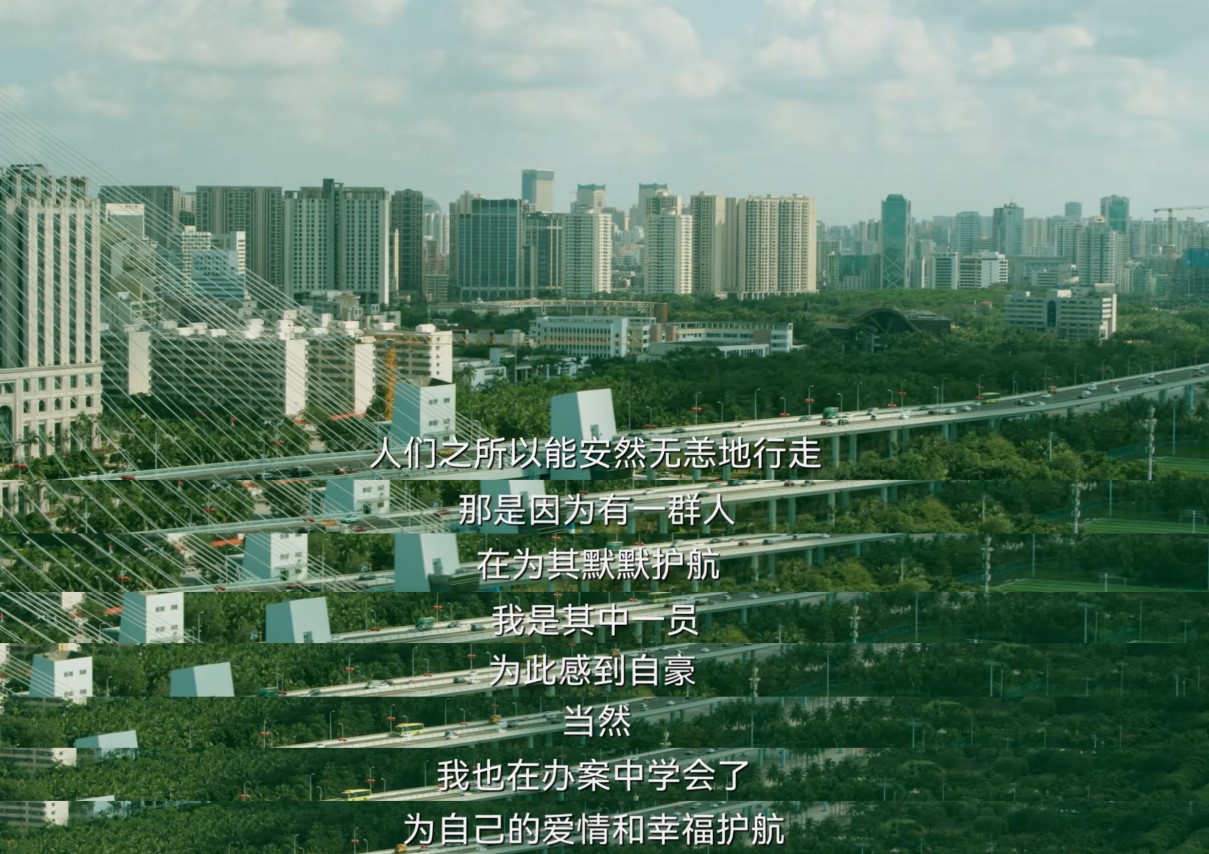
The voiceover of Ran Dongdong in the finale, this is the original plot
In any case, the drama version of "Echo" sometimes has good-looking character tension, which is brought by the novel; there are also a lot of twists and turns, which is the limitation of the lens language that cannot exhaust the charm of the novel; Don't know who to blame. Although the evaluation of the novel is not too high, if you are stimulated by the ending, it is recommended to read the original novel for relief.










Comments